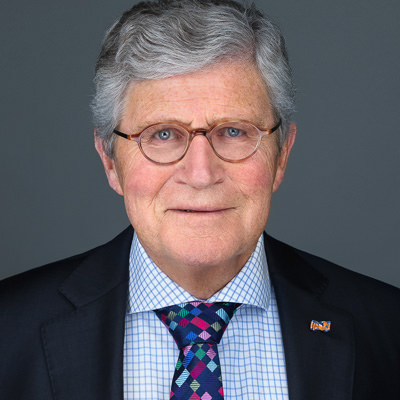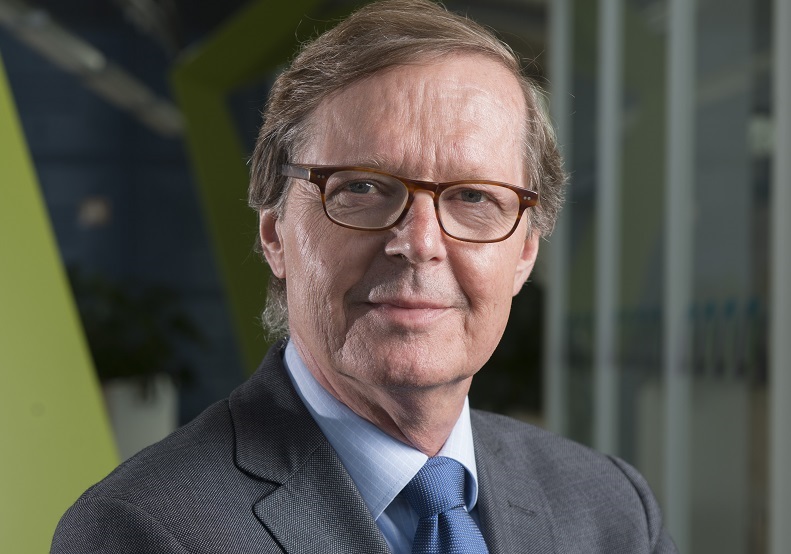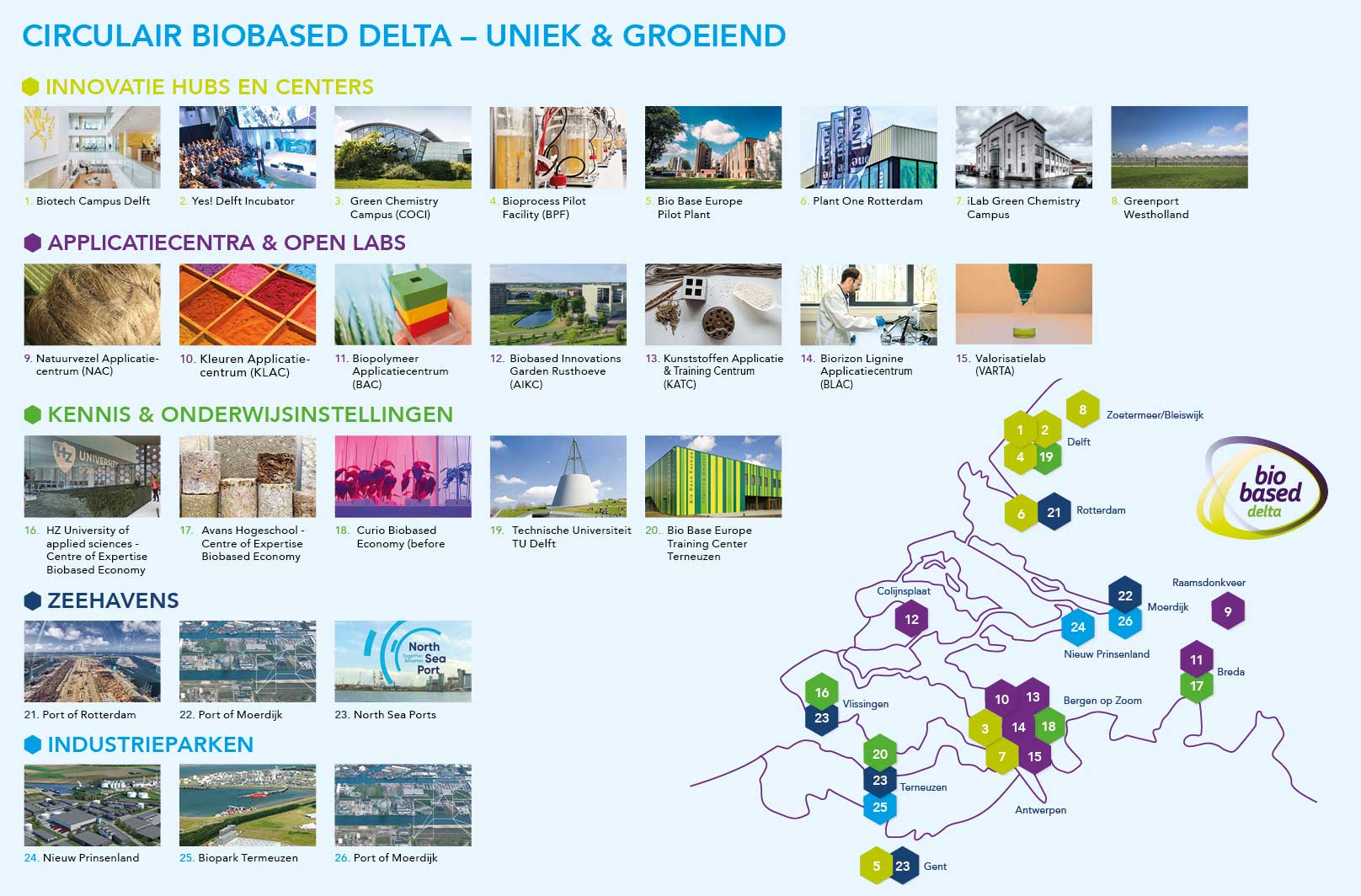The first ten years of Biobased Delta’s existence were characterised by a focus on replacing fossil raw materials with biobased solutions. Today it is recognised that the green cycles form part of a larger, circular economy. ‘The context within which we operate has changed,’ says Herman de Boon. ‘We now have a Climate Agreement, an Energy Agreement and a Raw Materials Agreement. Circularity has become a factor of increasing importance. The coronavirus is forcing us to give thought to things such as supply chains and dependency on raw materials. The urgency is greater than ever and that also provides for opportunities. This is why we searched for a clear target that is understandable for everyone: 10 Megatonnes CO2 reduction in the Delta region by 2030. This is challenging, but with all of the activities we are developing, this must be achievable.’
Focus on biobased
‘It is a clear dot on the horizon,’ Willem Sederel adds. ‘This target was not chosen by accident. We reviewed the CO2 reduction plans and targets of other parties in the Delta, for example of Smart Delta Resources (SDR), Rotterdam Port Authority and Moerdijk Port Authority. SDR does not make any mention of the word biomass. While the Rotterdam Port Authority’s plan does make mention of this, it gives priority to other solutions, such as electrification, hydrogen, plastics recycling, CO2 storage and use. In our view, ignoring biomass is not an option, because when we add up the impact of all of the plans, the total CO2 reduction in 2030 falls short by 10 Mtonnes. We are going to focus on filling this gap biogenically, in combination with circular concepts and otherwise.’
Biobased will therefore continue to be the key focus. Better still: ‘Biobased is the engine of the circular economy. Circular concepts never have a carbon cycle that is 100 percent closed. In addition, we are still growing. The shortage of carbon for the production of materials will have to come from biomass.’
This is also the focus of the current flagship programmes Sugardelta, Redefinery, Biorizon and, more recently, CHAPLIN. ‘It is not inconceivable that new initiatives will be added to this list in the future. For example in the area of pyrolysis. In addition, we will be shifting the emphases. Many of the initial programmes focused on approaching the markets on the basis of the feedstock. Today we are working back to the best possible solutions from three key markets: construction, packaging and biofuels.
Result-oriented
Herman de Boon: ‘Everything we do must be result-oriented. Our goal is to put in place approximately 100 projects and programmes that make a contribution to CO2 reduction. Of this, approximately 50 have since been identified, but not all are currently equally far advanced or feasible.’
‘The idea is to have a kind of Top 10 Projects every year that we closely track and provide with assistance and advice, for example by making use of our network within the chemical or agricultural sector, or in Brussels. The Foundation specifically will start by supporting two or three major projects each year. For example by working with partners to provide funding, knowledge and human resources for setting up the projects, building consortia, lobbying, and helping to facilitate upscaling. The Delta Region’s ecosystem has numerous facilities for this purpose. ‘If we do this, I am sure that these projects will be accelerated,’ says Sederel.
‘We must green, renew, earn and accelerate,’ concurs De Boon. This also requires a new management structure that ensures that the organisation becomes more versatile and is able to handle more activities. The management board will be reduced and will primarily focus on main elements, such as creating policy and frameworks. The activities will increasingly be assigned to an implementing body: the Acceleration Team (A-Team). This team will be shaping and giving direction to the portfolio of activities of Circular Biobased Delta, with a focus on four pillars: business development, technology, the ecosystem and the human capital agenda.
Living Organism
Delta’s ecosystem currently comprises 26 activity centres, the so-called workshops. It is important to note that this is not a separate collection of parties, but that together they form a well-coordinated ecosystem, anchored in the Delta Community. The A-Team will also be working on this. Specifically, this will involve an online platform for the purpose of optimising communications. It will also involve meetings where the parties can meet each other to explore topics together in-depth.
The added value of community membership furthermore must be in having access to various services to be supplied by the application centres, for example in the areas of technological and other knowledge, laboratory facilities, permits or financing. Furthermore, the community will also have to ensure that the Circular Biobased Delta, which currently is approximately 60% financed from public funds, will acquire more private funding in the future. This could be in the form of membership contributions or paid services. These plans still need to be further developed.
This article was created in collaboration with Circular Biobased Delta.
Image: dugdax/Shutterstock






